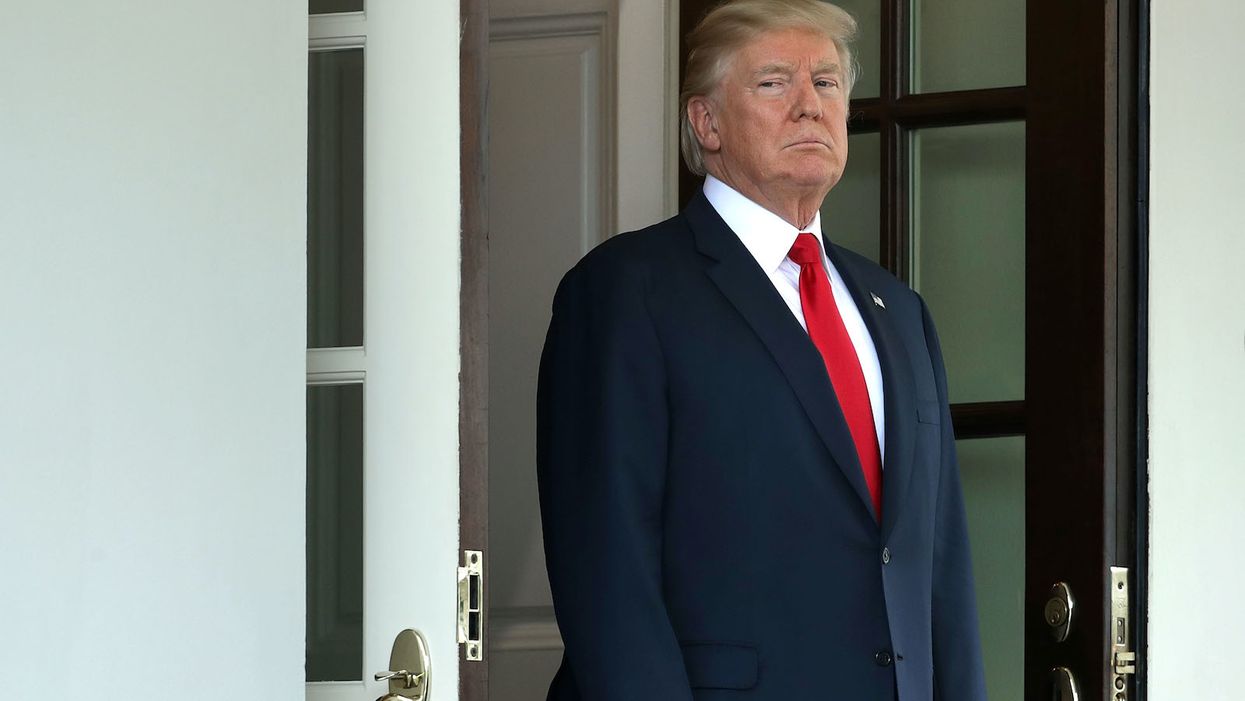
Chip Somodevilla/Getty Images

'The constitutional issues are significant'
The judicial fight over legal demands to release President Donald Trump's financial records took another step forward Monday when the Supreme Court of the United States temporarily stopped President Donald Trump's longtime accounting firm from having to turn over information to congressional investigators.
The order, which was signed by Chief Justice John Roberts, gives the House of Representatives until Thursday to respond in the matter. The decision comes after President Trump's lawyers asked the court to stop the records from being released under subpoena and after the House of Representatives' general counsel told the high court in a letter that the lawmakers would agree to "a short ten-day administrative stay" beginning on Wednesday in order to allow both sides of the case to file necessary legal paperwork.
The case has to do with a subpoena that the House Oversight Committee sent to the president's longtime accounting firm, Mazars USA, back in April for records related its investigation into Trump's business dealings from both before and after he took office. While the committee said it needed the documents for an evaluation of current government ethics laws, the president's team told the court that the investigation "serves no legitimate legislative purpose."
In October, a majority decision of a three-judge panel of the D.C. Circuit Court of Appeals ruled to uphold the subpoena.
The lone dissenter in the three-judge decision was Judge Neomi Rao, a Trump appointee confirmed to the bench earlier this year, who said the court's opinion blurred the "consistent line" between Congress' legislative powers and its impeachment powers.
"When Congress seeks information about the President's wrongdoing, it does not matter whether the investigation also has a legislative purpose," Rao wrote. "Allowing the Committee to issue this subpoena for legislative purposes would turn Congress into a roving inquisition over a co-equal branch of government."
Last week, a panel of judges consisting of the entire D.C. Circuit Court of appeals upheld the ruling enforcing the subpoena with an 8-3 majority. Rao was joined in her dissent this time by another Trump appointee and another judge appointed by George H.W. Bush.
The D.C. Circuit case is happening alongside a similar subpoena case in New York, in which the 2nd Circuit Court of Appeals ruled earlier this month that Mazars had to turn over the president's financial records to an investigation being conducted by Manhattan District Attorney Cyrus Vance.
"[A]fter reviewing historical and legal precedent, we conclude only that presidential immunity does not bar the enforcement of a state grand jury subpoena directing a third party to produce non‐privileged material, even when the subject matter under investigation pertains to the President," the federal court decided.
After the 2nd Circuit ruling, Trump's personal attorney Jay Sekulow, said his team planned to take the fight to the Supreme Court. "The issue raised in this case goes to the heart of our Republic," Sekulow said in a statement. "The constitutional issues are significant."